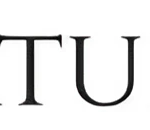
November 6, 2023
Blog
India just got its 100th Unicorn and is only behind the US and China in terms of the number of Unicorns. One of the most important factors behind these success stories is the understanding and teamwork between the co-founders of these amazing start-ups.
But there are also some examples of how a lack of understanding and co-ordination between co-founders spoiled the party for what would have otherwise been successful start-ups.
And the easiest way to avoid disputes and differences between co-founders from festering and finally bringing down the entire Company is by entering into a well-thought-out and well drafted Co-Founder’s Agreement.
What is a Co-Founder’s Agreement?
Co-Founders Agreement means an agreement between the co-founders of the start-up laying down the understanding between them broadly as regards:
- Co-founder’s individual rights
- Co-founder’s individual duties
- Mutual rights and duties
- Compensation
- Capital Contribution by each founder
- Equity and vesting
- Terms and Conditions of Exit
- Dispute Resolution
Benefits of Founders Agreement
- Brings clarity of roles to founders
- Avoids ambiguity
- Helps define parameters of performance
- Helps avoid conflicts and disputes between founders which is the most common cause of failure in start-ups
- Helps bring a common understanding about the structure and nature of business among founders
Key Considerations While Drafting the Founders Agreement
The following are the Essential Clauses that you shall consider while drafting your Founders Agreement:
Section I – Preliminary Detail Clauses
- Details of the Parties and Business
- Who are the Founders?
- What is the purpose of the Business?
- Is the Business incorporated? If yes, cap table.
- Purpose or Objective of the Agreement
- What is the objective you seek to achieve by executing this agreement?
Section II – Rights and Duties of Co-Founders
- Rights and Duties or obligations of each founder
- What are the rights of each founder?
- What are individual duties of the founders?
- Are there any performance matrices/ milestones to be achieved?
- What shall be each founder’s time commitment? Full time /part time?
- Mutual Rights and Obligations
- What shall be the mutual rights of the Founders? Eg: Rights to inspect account books etc.
- What shall be the mutual duties of the Founders? Eg: Duty to include the co-founder in all business communications etc.
- Capital Contribution and Equity Vesting
- How much each founder shall contribute as capital?
- If any of the founders have given money to the Company as a loan, what are the repayment terms?
- What are the repayment terms of any other external debt incurred by the Company.
- What is the vesting schedule regarding equity of the Company?
- Would there be restructuring of vesting schedule as the Company scales? If yes, what shall be the process
- Whose equity shall be diluted in case of ESOP?
- Non-Compete and Non-Solicit
- Does any founder have another job in an organization which directly competes with us? Is that with co-founders consent?
- For how many years the non – compete clause subsist?
- With whom the leaving founder cannot solicit business?
- Confidentiality
- What constitutes sensitive business information which should not be disclosed to any person other than the founders?
- What are the confidentiality obligations related to the business concept?
- Compensation/ Profit Sharing
- What shall be the compensation to be received by each partner?
- What shall be the profit-sharing percentage of the founders?
- Non-Performance of the Partners
- What shall construe as non-performance of the duties?
- What shall be the consequences in case of non-performance of the duties?
- Is there a clawback on the vested equity or pause on the vesting of equity as a penalty for non-performance?
- Intellectual Property Rights
- Shall the IPR owned by the Founder transfer to the Company? If yes, when shall such transfer happen?
- Would Founders transfer the new developed IP to the Company?
Section III – Exit
How will the exit of any of the founders be handled in the following scenarios? What will be the exiting founder’s rights and duties?
- Voluntary Retirement
- Death
- Removal/ Termination
- What shall happen to the unvested equity of the exiting Founder?
- Is there a clawback on the vested equity?
Section IV – Dispute Resolution, Force Majeure and Validity
- Dispute Resolution
- What shall be the dispute resolution mechanism? Eg: Mediation, ADR, etc
- What shall be the governing laws in case of the dispute?
- What shall happen in case of deadlock? Shall it be mutually decided or one person gets the last say in the particular issue?
- Force Majeure
- Force Majeure is a clause which exempts the Parties from any liability under the Agreement if a natural disaster or catastrophic event takes place. Such events include fires, floods, earthquakes, and other such natural disasters or pandemics, war, civil or military disturbances and such other man-made events which are beyond the control of either Party and which prevents them from fulfilling their obligations under the Agreement.
Conclusion
Drafting a co-founder’s agreement thus forces co-founders to think about different scenarios which they may not have thought about earlier when starting the Company. It helps them bring clarity to their own understanding of each other’s roles and responsibilities and helps avoid conflicts and misunderstandings in the future which may derail their start-up’s journey to success. Remember, it’s more about the journey and not just the destination.




